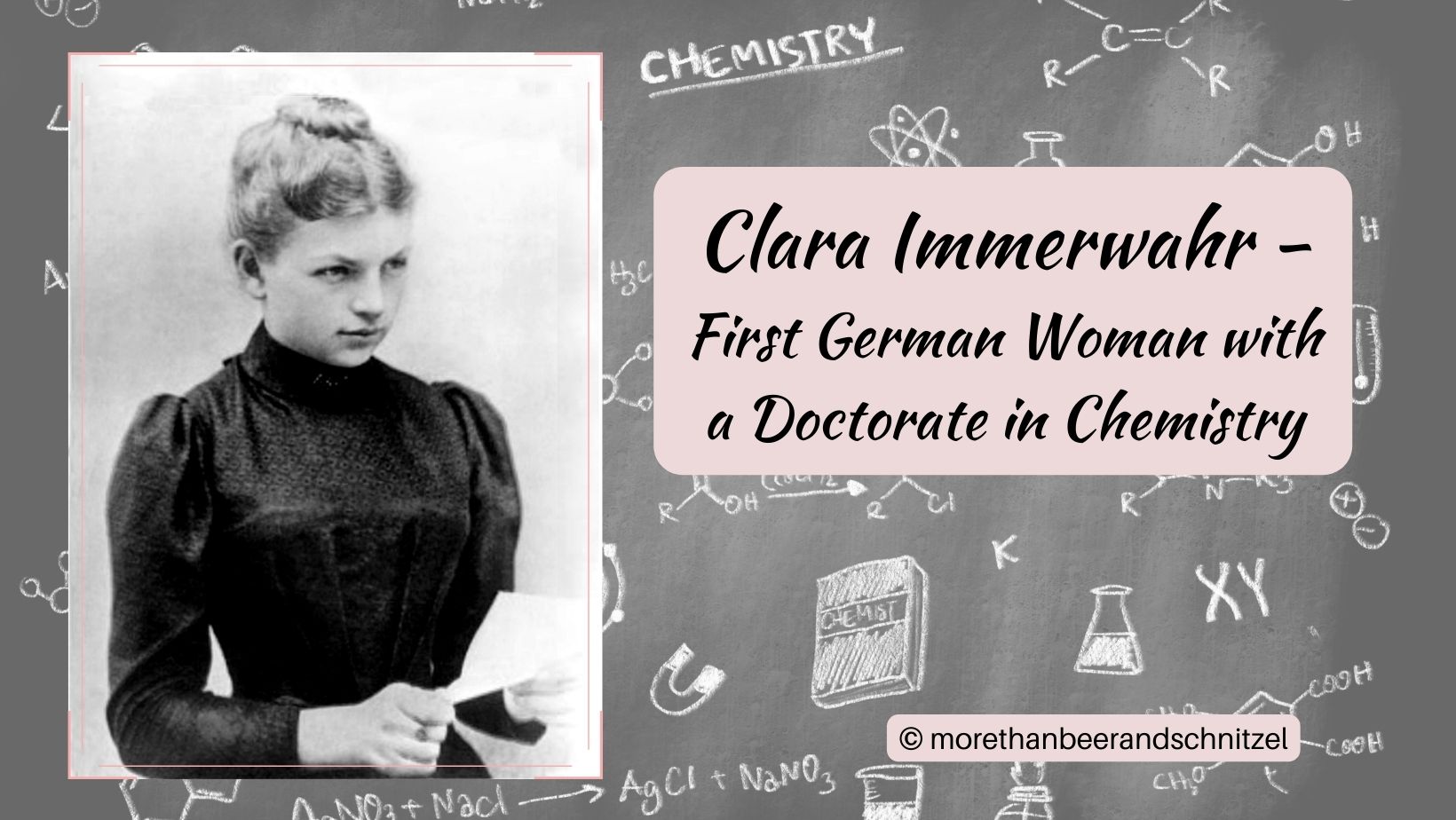Clara Immerwahr was the first German woman to receive a doctorate in chemistry, and the first woman to earn a PhD from the university in Breslau.
Clara Immerwahr (later Haber) was born June 21st, 1870 near Breslau (now Poland) and died by suicide on May 2nd 1915 in Berlin.

Education
Immerwahr was born into a wealthy Jewish family (Clara converted to Christianity in 1897) and was educated as much as was possible for girls during that time. Her father was a chemist and freethinker, and it isn’t surprising that his daughter would show an interest in chemistry.
When Clara’s mother died, the father moved to Breslau with Clara where she was able to obtain a higher education by signing up to become a teacher which then led her to take classes at the university (as a guest student only) and finally her Abitur exam in 1897.
She applied to become a student at the university in Breslau and was allowed to attend classes, again only as a guest student. Eventually her status was changed to that of a proper student and she received her doctorate in chemistry in 1900 with a dissertation about the solubility of heavy metals.


Marriage with Fritz Haber
In 1890s, Clara had met Fritz Haber, a chemistry student from Breslau who studied in Berlin. Their passion for chemistry turned into passion for each other but Clara turned down Haber’s proposal. She was concerned that she wouldn’t be able to further her education and research if she got married.
But when they met later again, Immerwahr changed her mind and the couple got married in 1901.
At first they were working together, still sharing their interest in chemistry. Their son was born in 1902, was often sick and it became clear that Immerwahr might not return to the lab like she might have hoped.
To keep her mind occupied she developed a lecture series about “Chemistry in Kitchen and House” which was so well received that she followed it 1906/07 with “Sciences in the Household“.
However, Immerwahr and Haber’s marriage deteriorated that more he worked and traveled and the less happy she was with her life as a housewife, mother, and wife of a professor.


World War I, chemical gas, and suicide
When WWI loomed and Haber developed poison gas for the government to use as a chemical weapon, husband and wife drifted even further apart. As a pacifist Immerwahr had serious concerns about her husband’s work.
In 1915 in the Second Battle at Ypres (April 22nd – May 25th), the gas was used for the first time. Accounts of Clara’s reaction are contradictory.

Shortly after the first use of chlorine gas, on May 2nd 1915, Clara Immerwahr shot herself in the chest with Haber’s revolver. She died in her son Hermann’s arms. Haber returned to the front the next day.
Not much is known about the circumstances of her death. It is speculated that she was so distraught about Haber’s work and the people who were killed as a direct result. Other accounts state that the night before she caught her husband and Charlotte Nathan, later his second wife, in a compromising situation.
Fritz Haber received the Nobel Prize in chemistry in 1918 for the Haber-Bosch process to synthesize ammonium.



